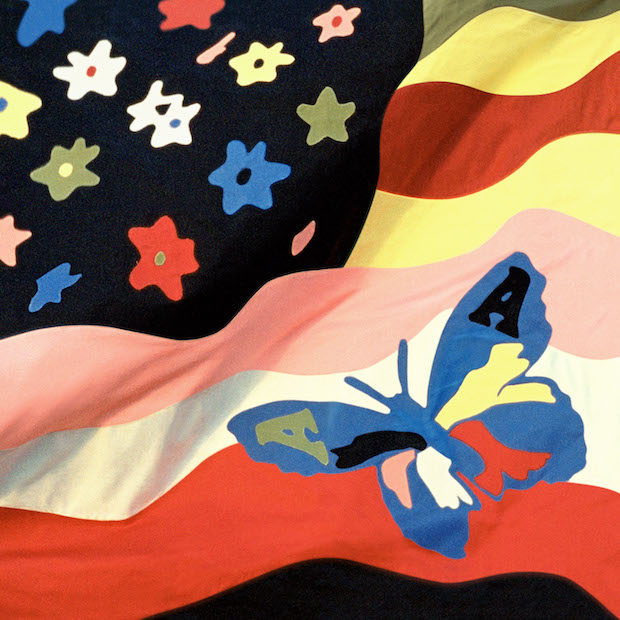Like Guns N’ Roses, Dr. Dre and My Bloody Valentine, The Avalanches have been a cautionary punchline for much of the last decade. Having fired out the gate with an album as alarmingly magnificent as Since I Left You, the band had the world waiting with bated breath for the long gestated follow up. But the months turned into years and the years to a decade and anticipation faded into abandon. The group’s style, plunderphonics, is a found art approach to music wherein everything from lost classics to tv jingles and soundbites are stripped apart and reassembled into something new and exciting while retaining the originals’ identity. It’s a stylistic choice that the group’s last effort, along with DJ Shadow faultless …Endtroducing, essentially perfected. By having such a flawless initial broadcast and embarrassingly long incubation period for the follow-up gave this unshakable sense that the group were a one trick pony unable to top themselves but couldn’t quite give up the ghost; an Icarus band. But now, with little warning, the Aussies have decided to drop Wildflower, a collection that isn’t entirely successful, but does suggest that the Avalanches do still have a unique perspective to bring to the table.
The record does inspire much and when it lets its hippyish inclinations run wild it’s a truly delightful musical voyage; something to turn off your mind, relax and float downstream with. The majority of Wildflower has this lighter than a feather in zero gravity mood which allows for an incredible amount of charm to engulf it. ‘Frankie Sinatra’, easily the most endearing cut on display, is a joy to behold. Using calypso music as the backbone not only provides the song with a clear and completely unique identity in contemporary pop but also allows the band to host the best hook of the entire album with a frustrating degree of ease. ‘Zap’ has this early morning feeling as though it managed to capture the golden hour in a musical form, while ‘Colours’, ‘Harmony’ and ‘Live a Lifetime Love’ have this warm hue about them that makes it feel as though they’re ascending to some kind of higher more peaceful plain of existence. But one of the real joys here is the innocent, almost De La Soul like ‘The Noisy Eater’ featuring none other than one-hit wunderkind Biz Markie. His verse is fun and fluffy – it’s about a man being a noisy eater – that manages to capture the naivety and earnestness of early hip-hop. Add to this a children’s choral rendition of ‘Come Together’, a classic Hollywood string section, and the old school hip-hop beat and the result is surprisingly enchanting.
A curiosity about the record is the overt reference to Sly and the Family Stone’s There’s A Riot Goin’ On that emblazons the cover. While this does conjure recollections of the undeniably funky and powerful noise that Sly and cohorts created, it also highlights the flabbier and unfocused elements of Wildflower. Where Sly’s cover art wrapped up its red, white and black America with the tumultuous experiences and sounds of African-Americans, this tie-dyed, flower child rendition of the same ideology feels substantially less revolutionary and more flippant. The second half has such a glut of material that the deeper you delve, all that seems to be found is fatigue. Worse, it’s the kind of exhaustion that retroactively recontextualizes mere trifles of songs into a worse beast. ‘Subways’ and ‘Going Home’, disco-driven ditties which use a forgotten early post-punk track of the same name as their chief inspiration, are these flimsy glorified b-sides that upon repeat listens become increasingly unwelcome. The split between the two pieces is mostly superfluous and adds to the frustration as there is a better three minutes buried with these two nuggets and showcases a lack of discipline and cohesion within their vision, feeling less Jackson Pollock’s controlled chaos and more kitchen sink uncertainty.
With this said, though, for the musically obsessive, Wildflower is a rich tapestry begging to be torn to pieces so that every single thread can be seen in isolation. There is a real gleeful fun in intently listening and picking apart every moment to determine where each of the samples comes from. Some are unmistakable, many require an almanac and others are specific to only you. ‘If I Was A Folkstar’, an excellent cut, weaves in the dulcet tones of Kip Casper Klon from Queens Of The Stone Age’s Songs For The Deaf and, suddenly, it’s 2002 and everything is, for a moment, brand new again. That is the real magic of the group and the secret to their longevity. It’s music for music lovers, that which you can pour hours, days and weeks into, and that can expand and reignite a sonic palette. There is a reason why people carried the torch for this album for so long. While it isn’t good enough to justify the wait, it has a great deal of that magic that made their debut so exciting. They still have a message to relay, even if they don’t quite know the best way to express it. Will Murphy





